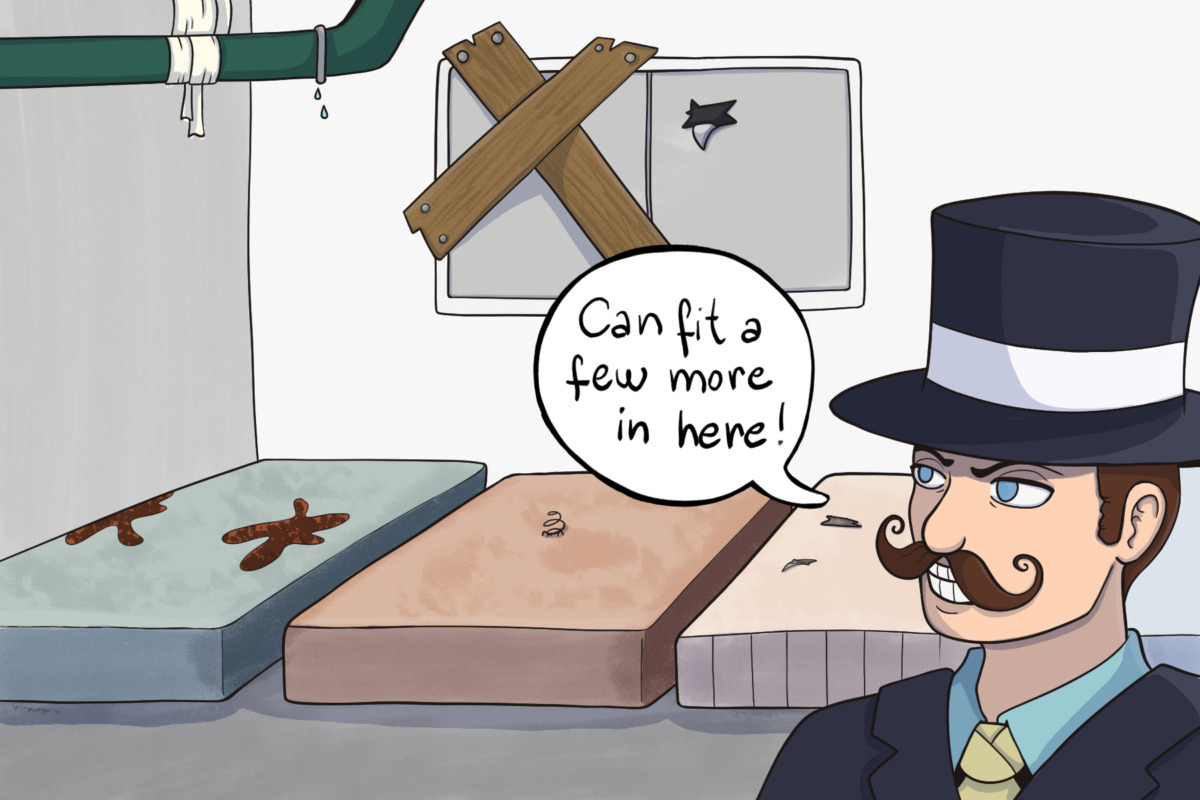After 20 years of drugs, Thomas Bradley has moved from being ‘a hopeless dope addict to a dopeless hope addict’
In his own words, Thomas Bradley, 36, put in a “20-year-career” of being a drug addict which included periods of homelessness, stealing from friends and family, jail-time and seven overdoses. In this career, Bradley’s primary job was to feed his addiction.
“Drugs gave me enough willpower to get out of bed, and the only reason I got out of bed was to get more dope. I didn’t get out of bed to go to the dentist, I didn’t get out of bed to go to work.”
Bradley, who just finished his first semester of George Brown College’s (GBC) transitions to post-secondary education program, thinks that his trouble with substance use began with his parents’ separation in 1992. When his parents separated he lived with his father, who Bradley described as an alcoholic, a party animal and someone who could get aggressive.
“My dad tried to relive his youth, my house became the party house. Everybody would come to my house and party, and I never got to leave that party.”
A competitive streak at one time drove Bradley to hone his skateboarding abilities to point of getting sponsorship offers, and potentially turning professional. But the drive for drugs won out over his skateboarding talents, and he would spend the next several years, angry at himself and everyone, using most days, and in and out of treatment programs.
Bradley’s substance use escalated to the point where he thought he wanted to be the best addict he could be, at times feeling compelled to compete with his friends over who could buy and use the most drugs.
In 2015, a survey by Centre for Addiction and Mental Health found that 16 per cent of Ontario students in grades 9-12, an estimated 114,600, reported that they had symptoms of a drug use problem.
Leap of Faith Together (LOFT) community services has been running substance use and mental health open groups at GBC, Ryerson and the Ontario College of Art and Design University for a year. The sessions are open so students can drop in and leave as they need, and emphasize learning skills to work through problems with substance use.
Darlene Coppens, a transitional aged youth coordinator with LOFT, said that one of the goals of the campus program is to start a dialogue with students about substance use, and to bring services directly to students.
“When we first started to meet with students, some of their conversations were about how it was easier to find drugs then it was to find services. If someone asked them ‘where do I find coke?’, they could tell you where it was, but if someone said ‘I don’t want to do coke anymore, what do I do?’, no one knew what to do.”
A report from LOFT said that 51 students are enrolled in the program, and that 86 per cent of students involved have maintained their enrolment in school.
Coppens said the biggest goal in the program is keeping students with substance use issues in school. Instead of feeling they need to quit, get kicked out, or withdraw the program works with them to continue their education.
Bradley didn’t finish high school, and was sometimes homeless before he made it to George Brown.
“I would notice, ‘okay, I’m sleeping outside in the snow with a sleeping bag. Something’s wrong here.'”
But Bradley’s worst moment involved the death of grandmother, a person he said was one of the most important people in his life.
“My grandmother passed away, and I didn’t make it to the funeral because I was high.”
It took Bradley two months after his grandmother’s death to stop using. On the day he got clean, Bradley said that he made eight promises to his grandmother to change things and make up for lost time. The promises are very private to him, “I’ve told nobody those promises except the sky,” but Bradley said he hasn’t broken a single one.
In a new relationship, and learning to be a father to his partner’s daughter, Bradley is brimming with ambitions, including becoming a life coach, a motivational speaker and recording a hip-hop album.
Clean since October 2015, he stays active in the substance recovery community by writing motivational blogs for others struggling with addictions.
“I’m reintegrating into society again, from a hopeless dope addict to a dopeless hope addict.”


